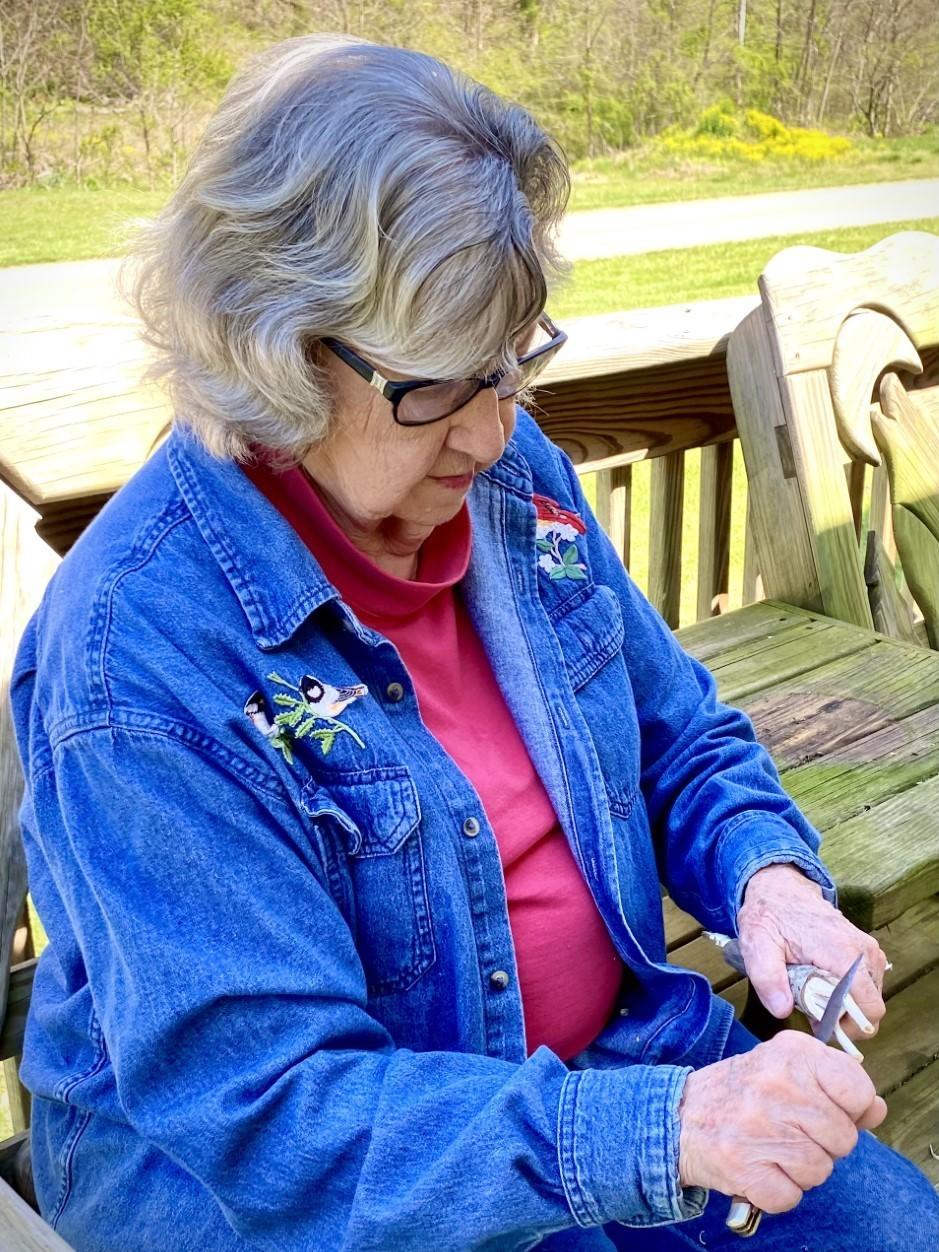Section Branding
Header Content
During The Pandemic She Whittled Away At The Isolation By, Well, Whittling
Primary Content
The coronavirus pandemic has challenged all of us in big and small ways, but one of the toughest parts has been the isolation. Many people found creative ways to cope as they wear masks, work from home, or are alone more than usual.
One 87-year-old Kentucky woman spent the time whittling.
Minnie Adkins spent almost the entire past year alone, in her home nestled in a valley among the rolling hills of eastern Kentucky. She usually sits in her recliner in her living room with a towel on her lap to catch the shavings from the wood as she whittles. But on this day, she sits on her front porch. She slips a long pocket knife out of the pocket of her blue jeans and picks up a piece of Maplewood.
"So, are you ready for me to start whittling?" Adkins asks.
The folk artist begins carving on the wood to make a rooster. She said she enjoys whittling outside because there's a nice breeze.
"This is better to be a whittling outside than it would be in the house," Adkins explains.
She is known for carving whimsical animals such as possums, tigers, and bears. Since the pandemic, Adkins has mostly confined herself at the house. But she's stayed busy painting and whittling more than usual.
"I whittled 182 pieces from March 'til September," Adkins says. "Then after that, I done 62 paintings."
As she chipped away on the piece of wood, she said this time of COVID hasn't changed her style. Judging from the carving in her hand, it's second nature to her.
"Well you see, we just took off all the wood we didn't need and left what we did need. It would look better if I hadn't cut its beak so short," Adkins says.
As a 10-year-old, Adkins taught herself this art form that was primarily dominated by men. The woodcarver said she would make toys like bows and arrows, pop guns, and whistles.
In the mid-1980s Adkins sold a few of her pieces to a small Kentucky gallery for $32. Now some people pay hundreds of dollars for her carvings. She believes anybody willing to work hard can create folk art.
"You don't have to be trained," Adkins says. "You don't have to have nobody to teach you. You just do what your being wants to do and what your heart tells you to do."
The Appalachian artist is humble about the recognition she's received including an award of distinction from the Folk-Art Society of America and an honorary Doctorate degree from Morehead State University. She's honored her work is featured in permanent collections around the country, including the Smithsonian American Art Museum, the Cincinnati Art Museum, the Huntington Museum of Art, and the Kentucky Folk Art Center.
She says sitting on her front porch the last year and a half doesn't feel real except for all the work she's done. She's probably whittled twice as much as usual during this pandemic and calls it a blessing.
"I don't know what I would have done without my carving for the last year because it has helped me so much to get through the lonely days," Adkins says. "Only thing, I was a making money but I couldn't get out to spend it, so I guess that was good."
Copyright 2021 WEKU. To see more, visit WEKU.


